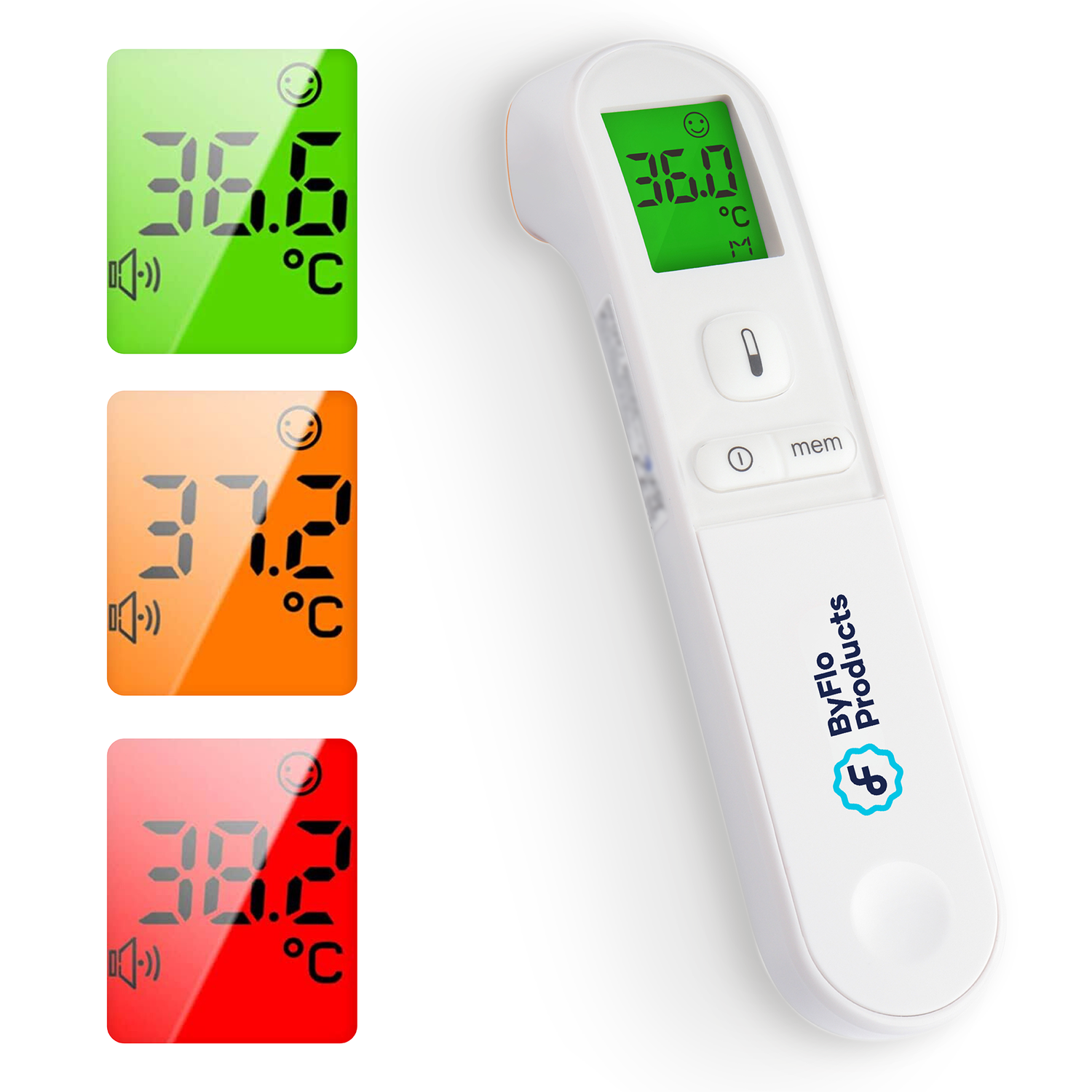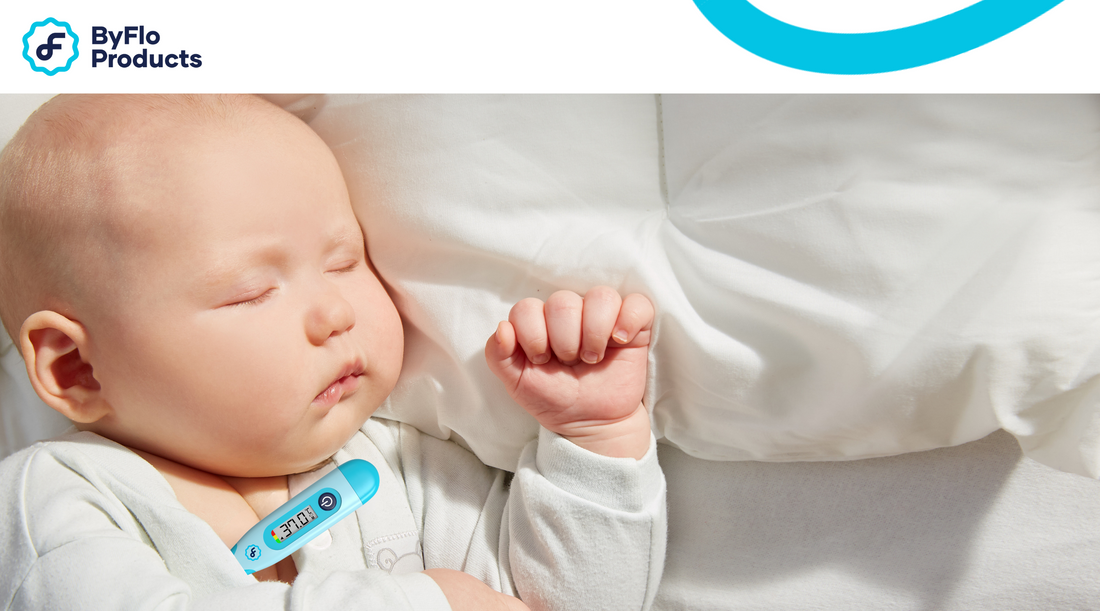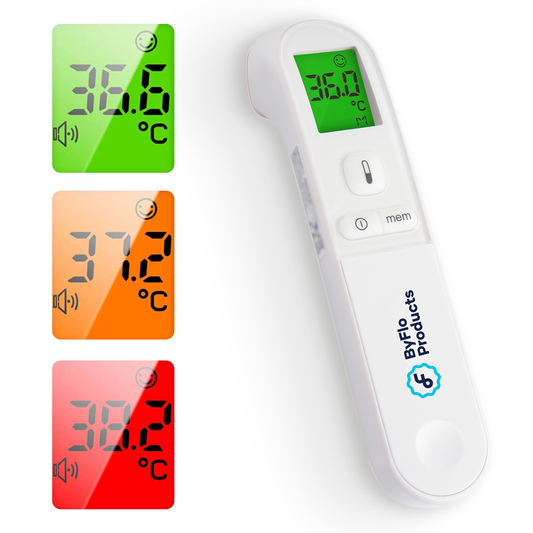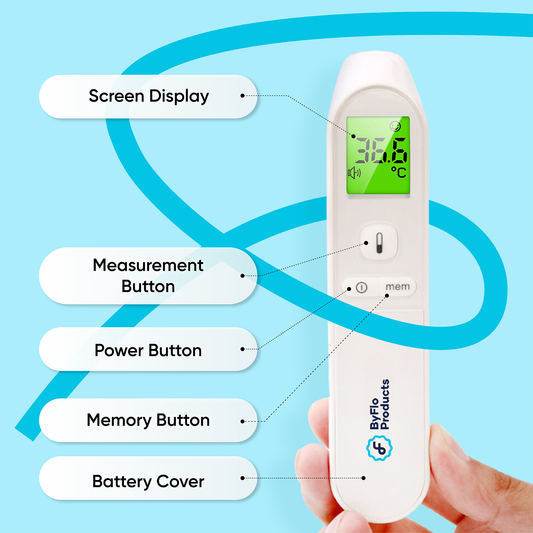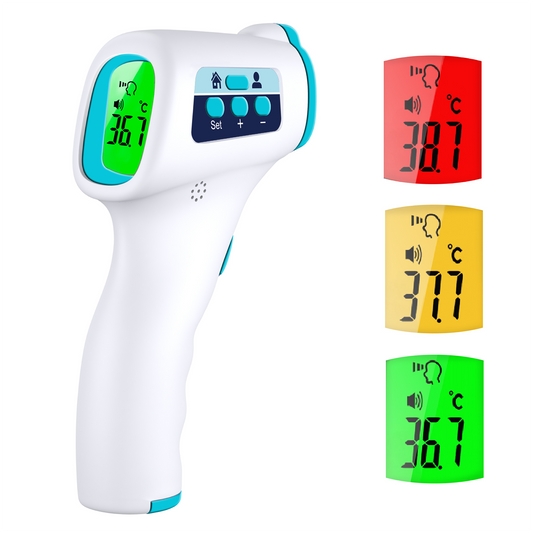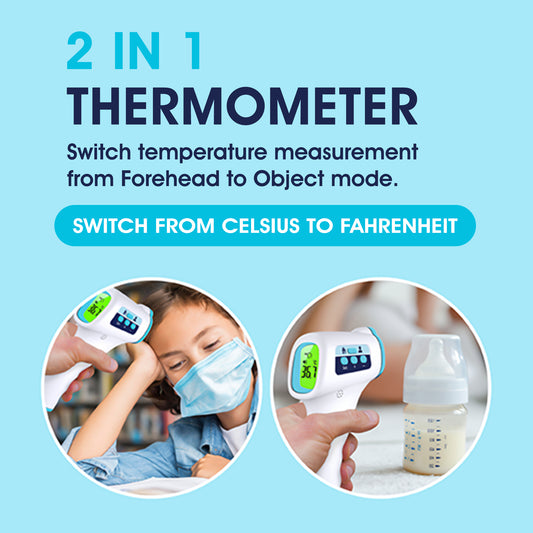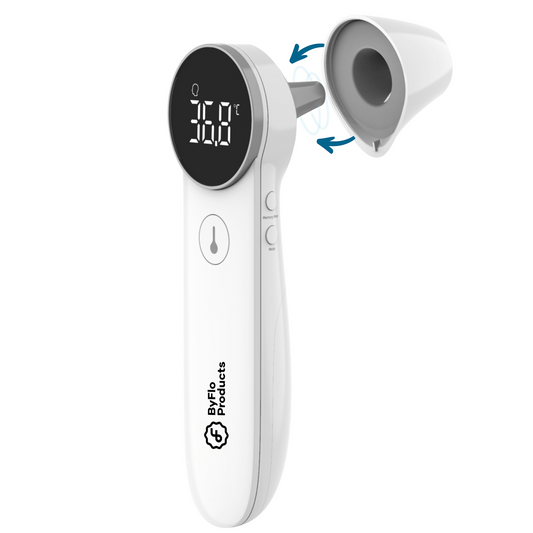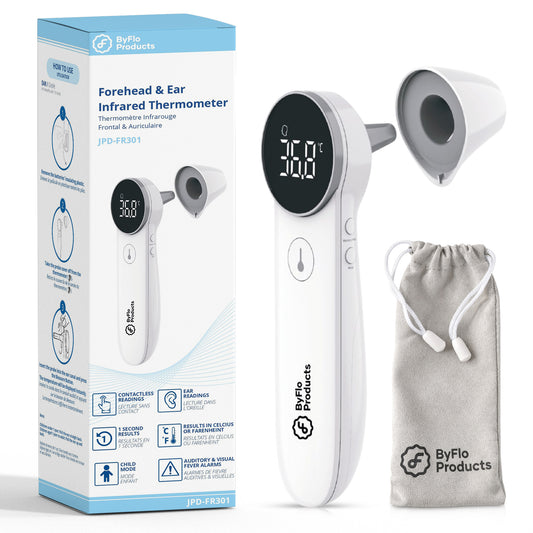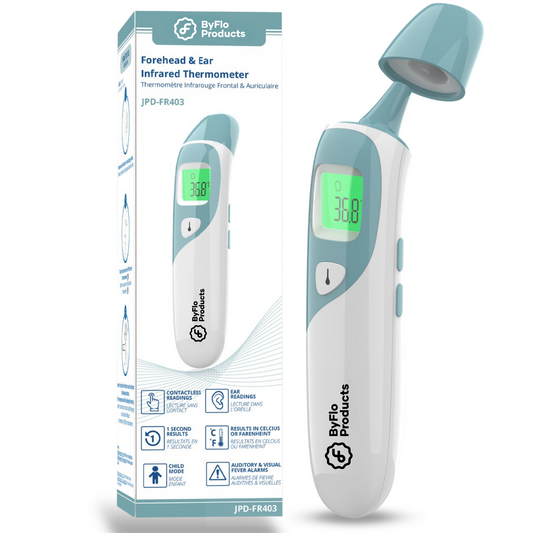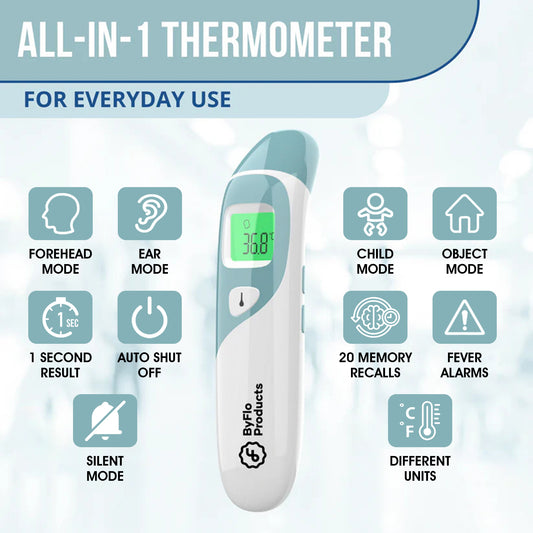Table of Contents
- Introduction
- The Importance of Monitoring Your Baby's Temperature
- Different Methods for Taking a Baby's Temperature
- When to Seek Medical Advice
- Conclusion
- FAQ
What is the Most Accurate Way to Take Your Baby's Temperature?
Introduction
Hey there, lovely parents and guardians! The first time my little one had a fever, I felt like I was in a whirlwind of confusion and concern. And one question kept nagging me: What is the most accurate way to take a baby's temperature? So, let's explore that pressing question today by examining various methods and products from ByFloProducts that can help make this easier. Ready to unravel this parenting mystery?
The Importance of Monitoring Your Baby’s Temperature
Having an accurate temperature reading is crucial—it's essentially a health report card for your baby. A wrong reading could potentially mean missing critical signs. So how do we know which method to rely on? What are the pros and cons? And how can we make this a more comfortable process for our little angels? Stick around because we're answering all these questions and more!
Different Methods for Taking a Baby's Temperature
Rectal Thermometers
For parents with infants, especially those younger than 3 months, rectal thermometers offer the most accurate results. Among our Health Canada-approved models at ByFloProducts, we have the DMT-4132 and DMT-4333. The latter even comes with a flexible tip for added comfort. Both models come in Blue and Pink, so you can easily distinguish which thermometer belongs to each baby. Dive into our Rectal Thermometers collection for more details.
Pros and Cons
Pros:
- Highly accurate
- DMT-4333 comes with a flexible tip
- Slightly invasive for the baby
Accuracy Level
Best for infants up to 3 months old.
Ear Thermometers
Ear thermometers offer an easy-to-use method but are not suitable for babies under 3 months. This makes them a good option for parents of older infants and toddlers. Browse our collection of Ear Thermometers.
Pros and Cons
Pros:
- Easy to use
- Quick results
- Not for infants under 3 months old
Accuracy Level
Suitable for babies older than 3 months.
Forehead Thermometers
Forehead thermometers provide a convenient way to take your child's temperature but can require a bit of technique. Ideal for parents who prefer a non-invasive approach. Check out our Forehead Thermometers.
Pros and Cons
Pros:
- Non-invasive
- Quick
- Technique-sensitive
Accuracy Level
Good for all ages if used correctly.
Oral Thermometers
Great for older children who can hold a thermometer in their mouths. This method is generally easier for school-aged children. See our range of Digital Thermometers.
Pros and Cons
Pros:
- Non-invasive
- Not suitable for infants
Accuracy Level
Best for older children.
Underarm Thermometers
Underarm thermometers are the least invasive but are generally considered less accurate. They are good for quick temperature checks when you don't want to disturb your baby too much.
Pros and Cons
Pros:
- Non-invasive
- Less accurate
Accuracy Level
Good for quick checks but not for precise measurement.
When to Seek Medical Advice
It's always better to be safe than sorry, especially when it comes to the health of your baby. Temperature is one of the first indicators to tell us something might be off. So when should you be concerned?
Consult your healthcare provider if:
- Your infant under 3 months has a temperature above 100.4°F (38°C). Infants at this age have not fully developed their immune systems, making them more susceptible to infections and complications.
- Babies and toddlers between 3 months and 3 years have a fever above 102°F (38.9°C). High fevers in this age group could be indicative of an underlying condition that requires immediate attention.
- Older children have a fever lasting more than 48 hours. Extended periods of high temperature can be draining and might be a sign of a more serious issue.
Additionally, look out for other symptoms accompanying the fever, like rash, difficulty breathing, or excessive fussiness, as these could also be signs that you should seek medical advice promptly.
Remember, when in doubt, don't hesitate to consult a healthcare provider for the most tailored advice for your child's condition.
Conclusion
So, what's the verdict? For infants under 3 months, rectal thermometers, particularly our DMT-4132 and DMT-4333 models, are your most accurate options. As your child grows, ear and forehead thermometers become more suitable, offering a balance between convenience and accuracy. Remember, technique and consistency are key. For a deep dive into our products and more invaluable advice, feel free to visit our Website.
So, what's your next move for ensuring peace of mind?
FAQ
What are the different methods to take my baby's temperature?
You can use various methods like rectal thermometers, ear thermometers, forehead thermometers, oral thermometers, and underarm thermometers. Each has its own pros and cons, so you'll need to decide which is best for your child's age and comfort level.
Are rectal thermometers accurate for babies?
Yes, rectal thermometers are highly accurate and are especially recommended for infants under 3 months old. Our DMT-4132 and DMT-4333 models are both Health Canada-approved, and the DMT-4333 model comes with a flexible tip for added comfort. They're also available in Blue and Pink.
When should I not use an ear thermometer?
Ear thermometers are not recommended for infants under 3 months old. They are more suitable for babies older than 3 months.
What's the best thermometer for a toddler?
For toddlers, ear and forehead thermometers offer a good balance between convenience and accuracy. These are ideal as they are less invasive and provide quick results.
When should I seek medical advice for my baby's temperature?
Consult your healthcare provider if your infant under 3 months has a temperature above 100.4°F (38°C). For babies and toddlers between 3 months and 3 years, seek medical advice if the fever is above 102°F (38.9°C). Older children with a fever lasting more than 48 hours should also consult a healthcare provider.
Where can I buy reliable thermometers?
You can browse and purchase Health Canada-approved thermometers from our collections: Forehead Thermometers, Ear Thermometers, Digital Thermometers.
